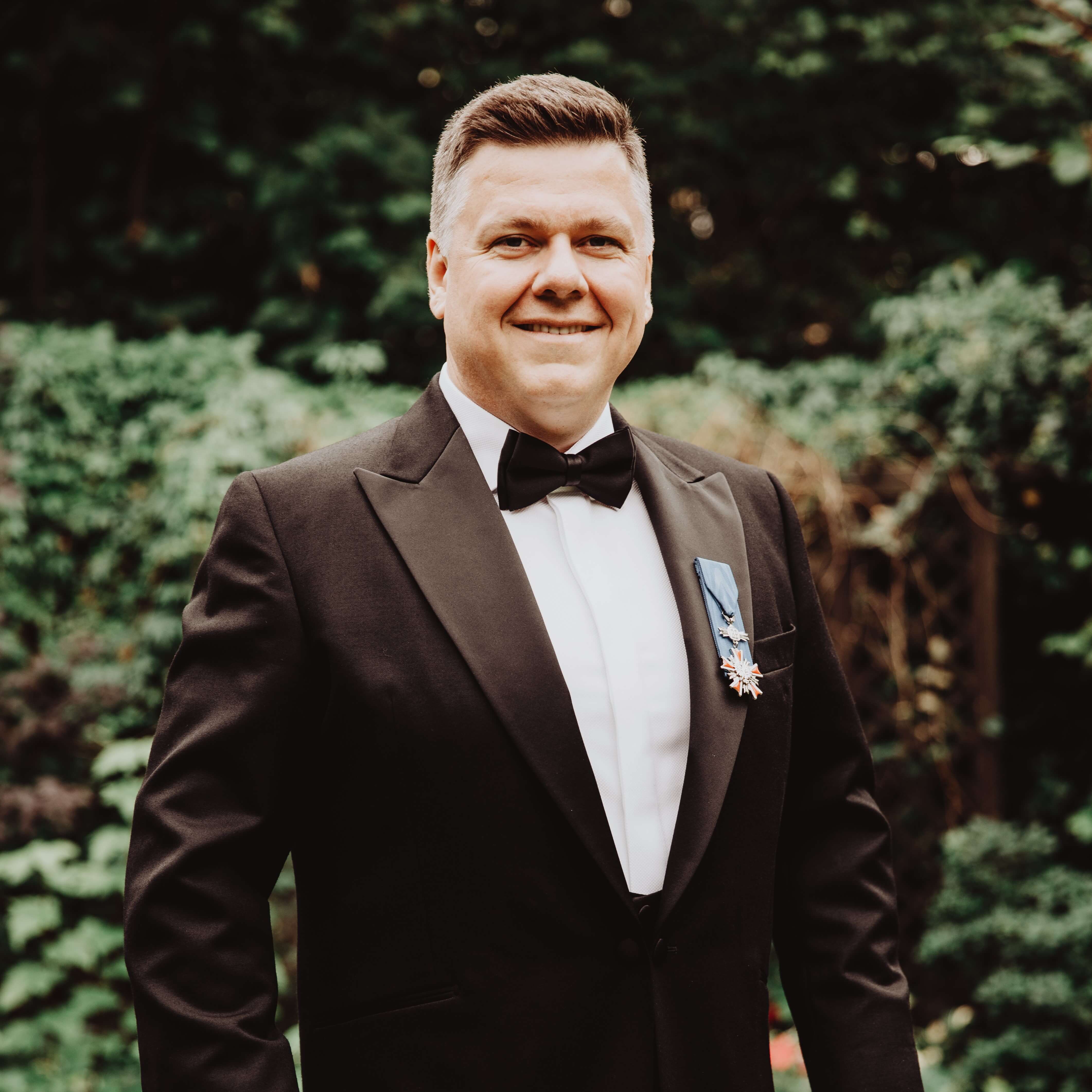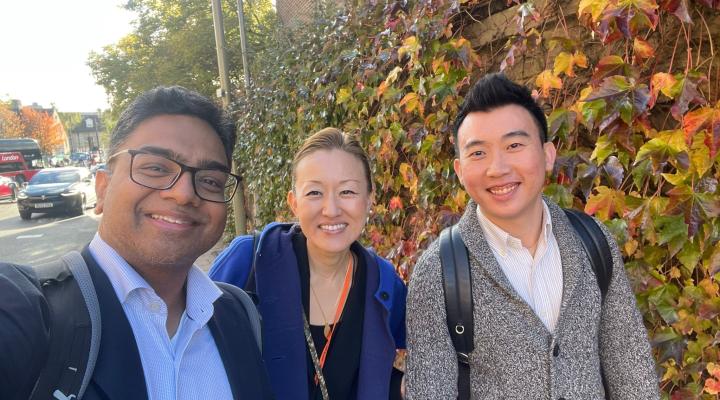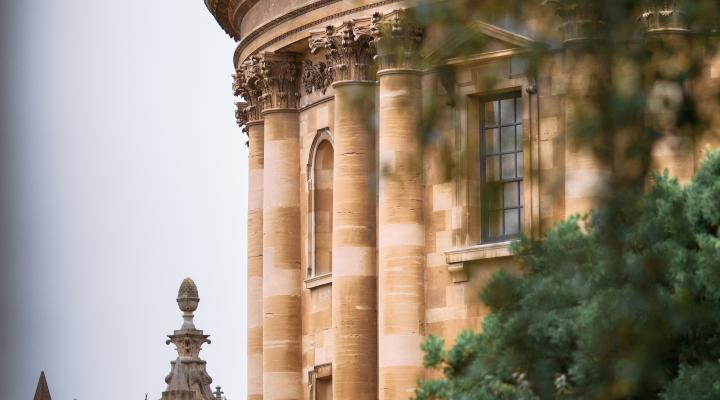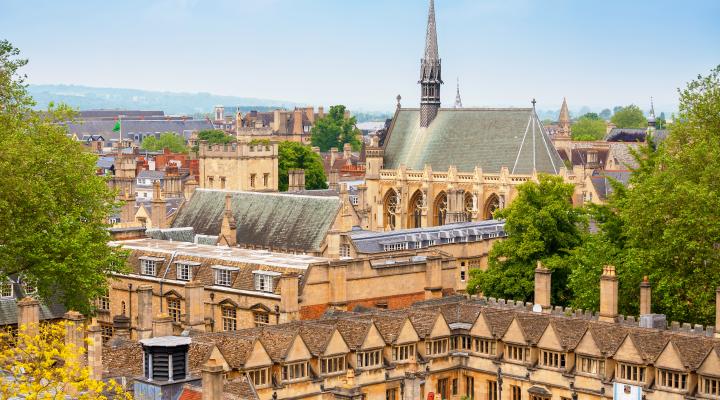In 1956, in Oxford's Sheldonian Theatre, the late Duke of Edinburgh, HRH Prince Philip, delivered the presidential address at the opening plenary of the Commonwealth Study Conference (CSC). It was an unlikely gathering which brought together 300 up-and-coming leaders from across the Commonwealth of Nations – all of whom came to spend two weeks in the UK to study the human problems of industrial communities within the Commonwealth and Empire.
The idea for the conference was motivated by the labour unrest in the UK and the need for greater business and labour dialogue. The theme was focused on ‘industry towns’ - cities linked to a specific industry, and thus vulnerable to its viability - seems strangely apropos given the impending disruptive impact of AI.
The format was simple: a few days of plenary meetings at Oxford for inspiration, filled with speeches and dialogue. The delegates would then be divided into study groups, spending two weeks on the road visiting every part of the UK. Lastly, the groups would reconvene, draft reports outlining their study tours and report back to the plenary.
Prince Philip called this conference an 'extraordinary experiment'.
Almost 70 years on it has become evident that this was no ordinary conference, but rather the genesis of a leadership movement, and its impacts have been felt across the Commonwealth. To date there have been ten such conferences and countless other regional and national conferences. CSC alumni includes over 5,000 leaders across every country of the Commonwealth. They have led at national and international levels in business, organised labour, politics, media and non-profit roles. Some have scaled Everest; others led global political summits.
The tenth (and latest) edition of the CSC just wrapped up in Canada after a 16-year pause and I’m pleased to share that there was an Oxford connection once again.
It was on January 17 of this year that I received a cryptic email asking me to register for a briefing for Canadian members. There was a 'PS' at the end of it which simply said that acceptance letters from the CSC were sent in December. I was in!

Fast forward to June 2 when I arrived in Banff, Alberta to start my two-week CSC experience. As a Canadian I had never been to Banff before - what a place to invite the world.
Our first few days were spent in plenary sessions learning from some of the sharpest minds in the Commonwealth. Dr R S Sharma spoke to us about the digital revolution he helped pioneer in India - bringing banking and government services to over 1 billion people. Ndidi Okonkwo Nwuneli from Nigeria spoke to us about her entrepreneurship journey that is bringing prosperity to her home communities. The singular Bruce Mau introduced design, his incomplete manifesto for growth and the story of how he helped change the name of a country.
This was all capped with insights by Her Royal Highness, Princess Anne, The Princess Royal (pictured), who met individually with each of our groups and inspired us with her words.

We also met and sized up the members of our study groups (mine being Alberta 1). I didn’t know this yet, but in about ten days’ time I would come to call them lifelong friends. Oh, and one more person, our Alberta organizing committee chair - the incredible Joanne Hansen - who would become our sherpa and firefighter (almost literally) as the group navigated a schedule affected by the forest fires in Alberta.
Our study tour took us from Edmonton, through Red Deer and as far north as Fort McMurray. We were in the heartland and energy core of Alberta - where the majority of Canada’s oil is extracted and where much refining, mineral processing and production takes place. It was also the homeland of a diverse group of Indigenous people (we principally visited Treaty 6 and Treaty 8 land).
Canada has had a complex and troubled past in its relationship with Indigenous people which has only recently come to national attention. A Truth and Reconciliation Commission and the horrors of Canada’s residential schools have created a national dialogue on how to move together into the future as partners. In Alberta much work has been done but of course the question of resources, revenue and the environment is a complex one which profoundly affects all individuals.
Throughout our study tour we saw many facets of these larger problems. But we also saw a lot of smaller challenges and how everyday Albertans are working to address them for the betterment of their communities and people.
A few examples immediately come to mind:
- Mark Jones was alarmed by the suicide rate among youth in his community and set about creating the Central Alberta Child Advocacy Centre. This innovative building (which is community-funded) brings together health, legal and law-enforcement branches of government in one space, focused on the concept of healing.
- Rene Michalak built the Red Deer Common Garden Project on a disused plot of land. This gave newcomers to Alberta an opportunity to volunteer in a community organization, while also yielding fresh food for their families at no cost. All excess produce was then donated to the local soup kitchens to feed the homeless.
- Jeanne Brigitte Lehman saw how women of colour were missing valuable business opportunities and established the Black Canadian Women in Action organization which helps with career development and inspiring young girls to become future leaders.
- Dr Jack Jhamandas is working in a lab at the University of Alberta Hospital to - get this - not just cure, but reverse the effects of Alzheimer’s. The work is supported through research grants at the provincial and federal levels. The wild thing is he’s working in a lab which has already received one Nobel Prize for discovering Hepatitis C, which ultimately led to its cure.
- Shane Nightingale, who works at Enbridge, a Canadian oil company, helped lead the development of the Indigenous Reconciliation Action Plan which aims to help this oil company better partner and co-develop projects with Indigenous people and communities.
Of course, our 16-hour days and long bus rides (Alberta is nearly five times larger than England) gave us plenty of time to bond as a study group. With Australia, Canada, Nigeria, Jamaica, Fiji, the UK, Pakistan, India, Botswana and Malaysia represented there were lots of stories of life back home, and never enough spicy food.
After ten days on the road, we got a private tour of Edmonton Airport and then flew to Montreal for the closing plenary - on a Formula 1 weekend. We were all exhausted and yet we had bonded to the point of being one unified team. Our business, labour, media etc, masks had come off and we were just friends experiencing leadership lessons together. We had one task left: to deliver a report from our journey. Twenty minutes to recall the lessons of ten days. It was clear to us that, while we had lots of photos, the leadership we saw could best be expressed through stories, told around a campfire, at night. So, we crafted a presentation where, with some fancy waltz-inspired footwork, each of us got to tell a chapter of our group story, in a circle and with the backdrop of the Alberta Rockies at night.

The last night was filled with a gala formal dinner, thank you messages to the organizers and a lot of teary goodbyes. And then it was over. Or was it?
For me, I picked up a lot of life lessons and learnings. I also reevaluated my leadership style. If you’re interested in some of my observations you can see them on my LinkedIn post.
We also formed lifelong friendships as a group. In fact, as I get ready to graduate from my Executive MBA, my graduation trip now includes meeting my new UK friends Rob and Camilla.
The CSC has truly been an incredible experience. I can’t imagine that Prince Philip, when he stood at the Sheldonian in 1956, could have predicted just how successful the conference would become in bridging understanding among people, building lifelong leadership skills and improving the prosperity of the Commonwealth.





